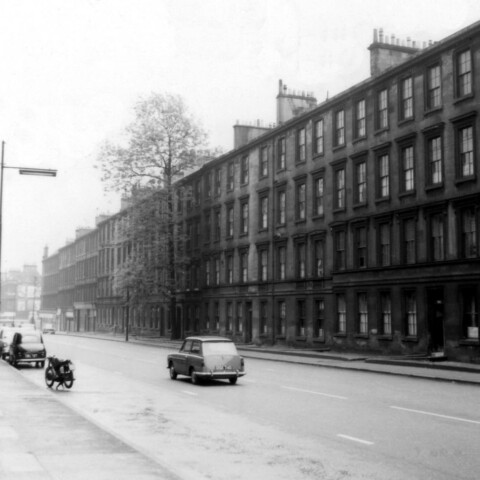Witchdoctor Rating
-
- 5/105/10
Summary
GARY STEEL sends an open letter to Roger Waters on the occasion of his first album in 25 years, Is This The Life We Really Want?
It feels like I’ve known you for at least half my life, although of course I don’t. But I’ve been listening to your music since I was eight or nine, digging my older sister’s well-worn copy of Pink Floyd’s ‘Arnold Layne’ single, and graduating as an adolescent to acquiring and admiring those still fresh-sounding albums. As much as I love Syd, I’m not one of those too-cool-for-school fans who only like the PF version with Barrett in it.
In fact, I made it all the way through to Dark Side Of The Moon before my ardour for your music started cooling off. That was the first full flowering of your artistic muse, and it’s a genuine landmark, and one of the most perfect albums ever made. The fact that it has a certain one-dimensionality doesn’t lessen its impact or importance, as few extended recording projects have managed such an exquisitely singular job.
Every successive Floyd album after that, however, felt like the law of diminishing returns had come into play. If early PF was a guarantee of some genuine level of musical and sonic exploration, and almost always took the listener on a journey, after DSOTM PF seemed to get bogged down in your obsessions. By The Wall – clearly an album you’re immensely proud of – your quiet desperation had grown wings and come up with a bloated double album that still sounds close to 40 years later lumpy and turgid in equal measure, and seemed to run directly against the Floyd ethos. It was just a bunch of songs (of which, admittedly, ‘Another Brick In The Wall’ was a standout).
A decade later, in 1990, I ended up going to the Potsdamer Platz mega-version of The Wall in Berlin with its roll call of superstar guests, and despite the auspicious occasion in honour of the recent dismantling of the Berlin Wall, the whole thing was horribly overblown and empty and unforgivably ponderous.
 It’s odd really, because in interviews you seem like a chap with not only a keen intelligence, but also a wicked sense of humour. Shreds of that intelligence come through in your work, but if I soaked up enough of your jaundiced worldview, I’d probably have to kill myself (or at least go on some strong anti-psychotics). Why would I even say this? Well, your work seems to almost entirely live in the ‘depressive’ side of the spectrum, with none of the energy or spark of the ‘manic’ opposite. As such, it seems fake – a kind of pretend bipolar that lets people slum it in your sludgy mire. And it doesn’t offer any kind of insight, unlike genuinely cathartic and frequently depressive artists like Peter Hammill/Van Der Graaf Generator.
It’s odd really, because in interviews you seem like a chap with not only a keen intelligence, but also a wicked sense of humour. Shreds of that intelligence come through in your work, but if I soaked up enough of your jaundiced worldview, I’d probably have to kill myself (or at least go on some strong anti-psychotics). Why would I even say this? Well, your work seems to almost entirely live in the ‘depressive’ side of the spectrum, with none of the energy or spark of the ‘manic’ opposite. As such, it seems fake – a kind of pretend bipolar that lets people slum it in your sludgy mire. And it doesn’t offer any kind of insight, unlike genuinely cathartic and frequently depressive artists like Peter Hammill/Van Der Graaf Generator.
So why, some 25 years after your last studio album, would I even bother listening to your latest? I guess there’s a vestige of respect left for your early work, and the hope that some day you might even find it in you to tune back into that more spirited and slightly more optimistic and more musically fertile ground. Ridiculous, I know. Every cell in your body has been replaced many times since then, so in some ways, you’re not even the ‘Roger Waters’ whose music I used to know and love so much. But still, I kept an open mind about Is This The Life We Really Want?
When I heard that you were confronting some of the present and very real evils of the current world, I was joyful. There’s nothing needed more at the moment than music that engages with what’s really going on, whether it’s overtly political or otherwise. I’ve been disappointed over and over by the way contemporary acts – even contemporary experimental or left-field acts – have pretty much ignored the worrying world issues in favour of songs that are effectively just more of the same love lies.
 The first time I played your new album was in the car with an old friend visiting from Melbourne, and with whom I’ve listened to those Floyd classics in wonder over the years on a miscellany of expensive stereos. On a bog-standard factory-fitted system, it sounds a lot like some old country codger whining about the state of his front porch. Except of course, you’ve added sound effects, because that’s what you do. Country music, with sound effects.
The first time I played your new album was in the car with an old friend visiting from Melbourne, and with whom I’ve listened to those Floyd classics in wonder over the years on a miscellany of expensive stereos. On a bog-standard factory-fitted system, it sounds a lot like some old country codger whining about the state of his front porch. Except of course, you’ve added sound effects, because that’s what you do. Country music, with sound effects.
We were both agape at how sad and listless it sounded, and how you seem to have insulated yourself from honest opinions about your vocal abilities. Here’s the thing, Roger: you have a rather tenuous grasp on a note, or should I say ‘tremulous’. A much worse singer than you, Dylan, grasped the obvious early on, and created a character vocal style that masked his deficiencies, but here, you’ve got an almost Florence Foster Jenkins-like belief in your vocal prowess, and it’s misplaced.
Possibly the saddest thing about the vocals is that they lack the musical support that may have left them less exposed – the kind of musical support that perhaps your former fellow travellers in Pink Floyd could have provided, or that a few more genuine collaborators might have added.
I think that Nigel Godrich (Radiohead) has done you a disservice, because instead of having a decent guitarist come in and dash off some great lines (where are you when you’re desperately needed, Jeff Beck?) there’s just a vapid and featureless musical landscape of synths and strings, and the odd strummed acoustic guitar. Someone like Beck could have actually given your compositions some much-needed musical architecture, whereas as they are things just drift. It almost sounds as if you’ve accidentally left some instruments off the album.
 Listening to the album later on a proper hi-fi, the promised audiophile jollies never eventuated. Sure, it’s not a bad-sounding record, but unlike DSOTM, this will never make it to that special rack of “stereo demo” records that dealers like to wow their prospective customers with.
Listening to the album later on a proper hi-fi, the promised audiophile jollies never eventuated. Sure, it’s not a bad-sounding record, but unlike DSOTM, this will never make it to that special rack of “stereo demo” records that dealers like to wow their prospective customers with.
The sonic references to the iconic DSOTM – ticking clocks, mad muffled voices – are rather obvious, although it’s nice that there’s a slyly humorous Roger in there somewhere.
‘Picture That’ is a song I would love to have been able to report was a genuine engagement with the issues of the day, but instead, lines like “picture a leader with no fucking brains” sound stale. I want to hear a record that rails against the madness of the current political diaspora with insight and articulation, not just some old coot ranting ineffectively. Sometime PF associate Roy Harper did this sort of thing so much better (check out his 1990 song ‘The Fourth World’, if you’ve never heard it).
It’s really hard to write about the things that matter without either coming on like a preacher preaching to the choir, or a teacher telling the kids what to think. Anohni did it brilliantly on last year’s Hopelessness album by focusing on specific human aspects of appalling governmental acts, and he also had the benefit of an amazing voice, and a perfectly realised (mostly electronic) background. On its title track, your album tells us that “fear keeps us all in line” but stops short of offering a solution or any kind of analyses, while the music itself fails to engage with its thumping bass and half-realised orchestrations.
 Then there’s ‘Smell The Roses’, which sounds like an attempt to rock like ‘Money’, but simply fails to get it up.
Then there’s ‘Smell The Roses’, which sounds like an attempt to rock like ‘Money’, but simply fails to get it up.
It’s only when you go into ballad mode that the album works, like on ‘The Most Beautiful Girl’ – not a simple love song, as it at first seems – which still has some of the old Floyd fluidity. Even the ballads, however, start to sound like more of the same towards the end of the record – a record that just limps to its conclusion.
Roger, I know that every artist’s ego needs a boost occasionally, and that’s the only reason I can come up with for this profoundly ordinary, meandering muddle. I wish a good friend had just taken you aside and said “Mate, do yourself a favour. You want to change the world? You’ve got heaps of money. Spend it on a good cause and go sail a boat.” Now, that would have been a more authentic project.
















